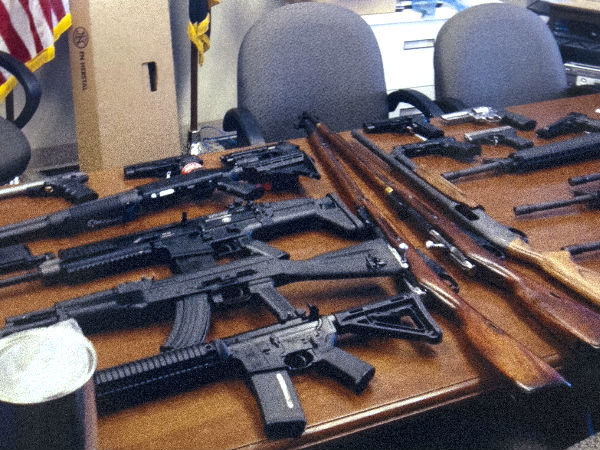The Philippine National Police will begin collecting from gun owners the fees for the license to own and possess firearms (LTOPF) as mandated by the new gun control law.
The payment of the fees will begin on Monday, June 15, to be made at the Land Bank of the Philippines branch at Camp Crame.
Senior Supt. Elmo Francis Sarona of the Firearms and Explosives Office said the PNP signed an agreement with the Land Bank on accepting and processing of payments for the LTOPF program.
Gun owners who applied for the LTOPF were initially given a temporary LTOPF. They will be notified through text about the payment details of the license.
The FEO had already issued 50,428 temporary LTOPFs since Republic Act 10591 or the new comprehensive gun control law was implemented.
A type 1 license holder will pay P1,000 to own and possess two registered firearms, while a type 2 license cost P2,000 for five registered firearms.
A type 3 license holder will pay P3,000 for 10 registered firearms and a type 4 license costs P5,000 for 15 registered firearms. A type 5 license for a certified gun collector costs P10,000 for more than 15 registered firearms.
Since May 2014, the FEO has issued temporary LTOPFs to 10 percent of around 500,000 registered firearms owners.
Of the 50,428 LTOPFs issued so far, 970 were to juridical or security agencies while 49,458 were issued to private individuals.
Data from the FEO have shown 1.6 million firearms registered with the agency, which means some gun owners own more than one firearm.
Sarona said the FEO has been trying to amend some provisions in the new gun control law’s implementing rules and regulations to make it easier for gun holders to comply with the application requirements.
This was after the PNP officer in charge, Deputy Director General Leonardo Espina, directed the FEO to simplify the application process for the LTOPF and permit to carry firearms outside of residence, following complaints that the requirements were excessive. SFM
